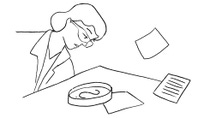Media
Science is not always about certainty
Creating Chemistry: Does the public have a good grasp of how science works?
VOLKER STOLLORZ: The public is not monolithic: there are four subtypes. Sciencephiles, about 30 percent of the population, think science is great. Then there are Critically Interested, about 15 percent, who are positive toward and interested in science, but also sometimes skeptical. Another 40 percent are Passive Supporters, only moderately interested: they get their science from the mainstream media. The final 15 percent, the Disengaged, are not interested, and often distrust science and scientists
How should science communicators address these different groups?
You need to think about which public you are addressing and ask yourself what information they may need or what concerns they may have. Listening to what people really want to know is the best way to communicate science.

In which ways has the pandemic affected science communication?
In early 2020, the pandemic was new to almost everyone, so there was real epistemic uncertainty. Normally, science knows what is going on. Scientists say: “We found A and that led us to B, case closed.” But this was not happening, and that was difficult for the public to digest. They saw that science is not always about certainty, but about finding new knowledge in uncertain times. Sometimes even science doesn’t know what is going on. This was novel even for science journalists. So, there was a legitimate debate about the dangers of Covid – even scientists didn’t know.
How do you get the right balance between presenting the limits of current knowledge and speculative ideas?
Science journalists have a different task from, say, political journalists. The job of political journalists is to present debate: Party A says this, Party B says that’s rubbish – and vice versa. But science and science journalism are about having solid evidence to make a case. In times of great uncertainty, it is best to admit that. Don’t say you know what you’re talking about when you don’t. Nonetheless, science reporting should show where expert thinking is headed. My general rule is: the stronger the scientific consensus, the more one can simplify, but the more epistemic uncertainty there is, the more you have to be on the lookout for the domain-specific expertise at the heart of a problem.
Do science journalists need to be experts in the topics they cover?
In his book Are We All Scientific Experts Now? British sociologist Harry Collins notes that science today is so large, nobody can be expert in everything. As a journalist, one needs what he calls interactional expertise. If you talk to thousands of experts, as a science journalist does over the years, you learn how to identify who is an expert. I don’t have the same knowledge as the expert, but I can feel when he or she is overpromising or doing public relations – or is an honest broker of facts. So, in case of doubt, good science journalists double-check with more than a few scientific experts to get a feeling of where the field stands on a certain question and what is the spectrum of legitimate opinions.







